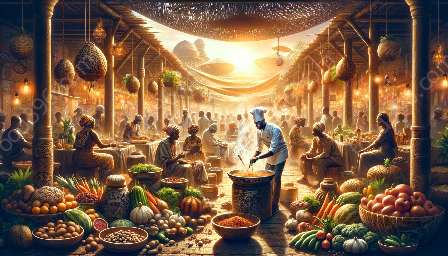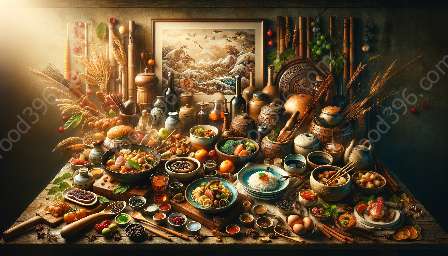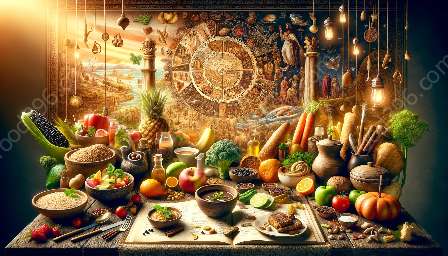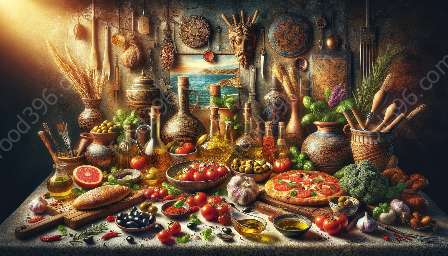French cuisine is renowned for its exquisite flavors, meticulous preparation, and rich cultural significance. Its history is a captivating tapestry of tradition, innovation, and global influence. To truly appreciate the depth and breadth of French culinary heritage, it's essential to delve into the historical roots and evolution of this celebrated gastronomic tradition.
The Origins of French Cuisine
The history of French cuisine is deeply intertwined with the cultural, social, and geographical landscape of France. Its origins can be traced back to the medieval era, where the concept of refined cooking and gastronomy began to take shape. During this time, French cuisine was heavily influenced by the culinary practices of invading civilizations, such as the Romans and the Moors, who introduced new ingredients and cooking techniques to the region.
As France evolved and transitioned into the Renaissance period, culinary arts flourished under the patronage of the nobility and royalty. The refinement of French cuisine was propelled by the opulent banquets and feasts hosted by the elite, showcasing elaborate dishes and extravagant presentations.
The Revolution of French Gastronomy
The 18th century marked a significant turning point in the history of French cuisine, as the Age of Enlightenment led to a culinary revolution. Visionaries such as Marie-Antoine Carême and Auguste Escoffier elevated French cooking to an art form, codifying the principles of classic French cuisine and pioneering the concept of haute cuisine - a style characterized by meticulous attention to detail and artistic presentation.
Furthermore, the French Revolution triggered a transformative shift in culinary practices, as the abolishment of the aristocratic privilege democratized access to culinary arts. This period witnessed the emergence of bistro culture, where simple, rustic dishes gained popularity among the masses, juxtaposing the extravagance of aristocratic gastronomy.
Global Influence and Cultural Significance
The global impact of French cuisine cannot be overstated, as it has permeated culinary landscapes across the world, shaping the very essence of fine dining and gastronomic innovation. French culinary techniques, such as sous-vide, sautéing, and flambéing, have become fundamental pillars of modern cooking methods embraced by chefs worldwide.
French cuisine is celebrated for its diverse regional specialties, from the buttery croissants of Paris to the bouillabaisse of Provence, each reflecting the unique terroir and cultural identity of its respective locale. Moreover, the UNESCO designation of the 'French gastronomic meal' as a cultural heritage underscores the enduring significance of French cuisine as a symbol of conviviality, enjoyment, and culinary expertise.
Evolution and Innovation
Throughout its storied history, French cuisine has continuously evolved while preserving its timeless traditions. The fusion of classical French techniques with global culinary influences has given rise to innovative culinary movements, such as nouvelle cuisine and molecular gastronomy, showcasing the adaptability and dynamism of French gastronomy.
Iconic Dishes and Culinary Icons
From the iconic coq au vin to the decadent crème brûlée, French cuisine boasts a repertoire of legendary dishes that have become synonymous with culinary excellence. Accomplished chefs like Julia Child, Paul Bocuse, and Joël Robuchon have left an indelible mark on the culinary world, solidifying the legacy of French cuisine as a paragon of culinary artistry.
Preservation of Tradition
Today, the preservation of traditional French culinary practices is safeguarded by institutions such as the prestigious Le Cordon Bleu and renowned culinary apprenticeship programs. These efforts ensure that the time-honored techniques and culinary heritage of France continue to inspire and educate future generations of chefs, preserving the enduring legacy of French cuisine.
In conclusion, the history of French cuisine is a testament to the enduring influence and timeless allure of this culinary tradition. From its humble origins to its global prominence, French cuisine continues to captivate food enthusiasts and connoisseurs worldwide, serving as a vibrant tapestry of gastronomic excellence and cultural significance.




















